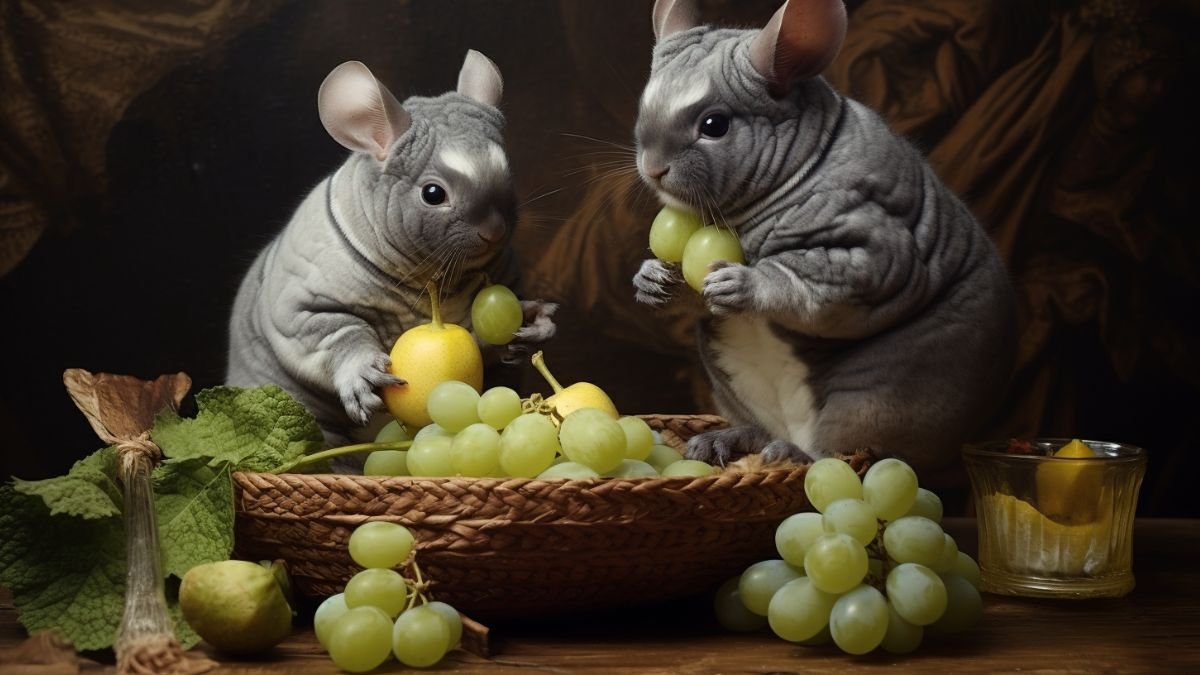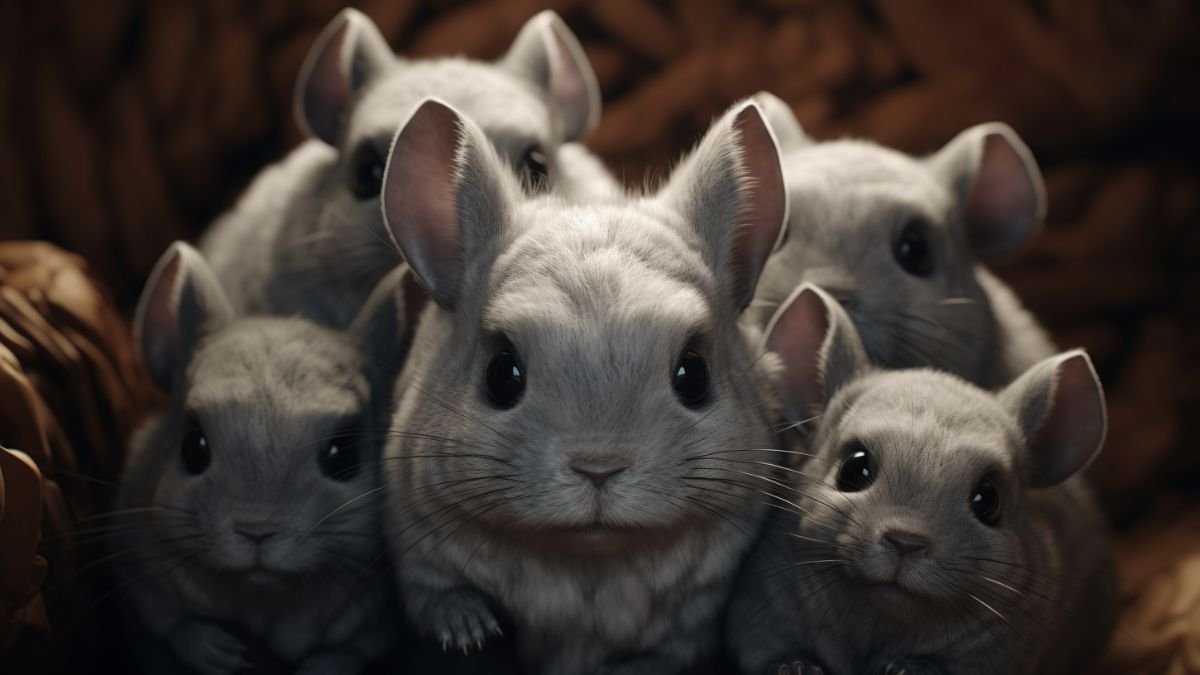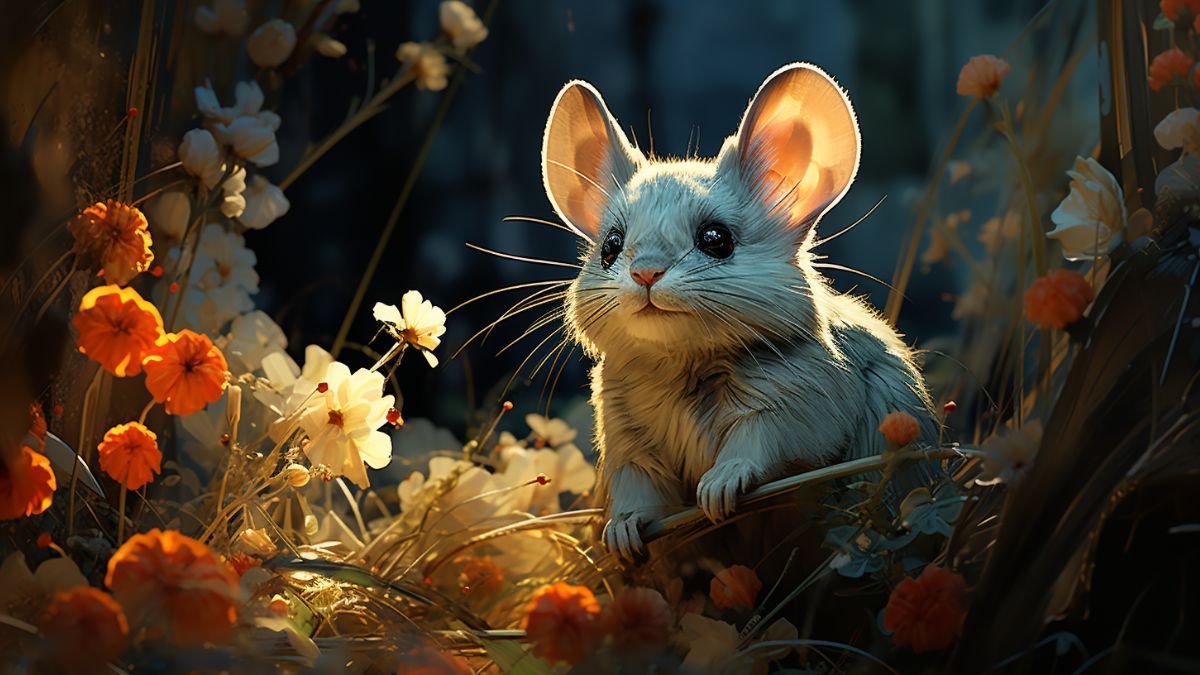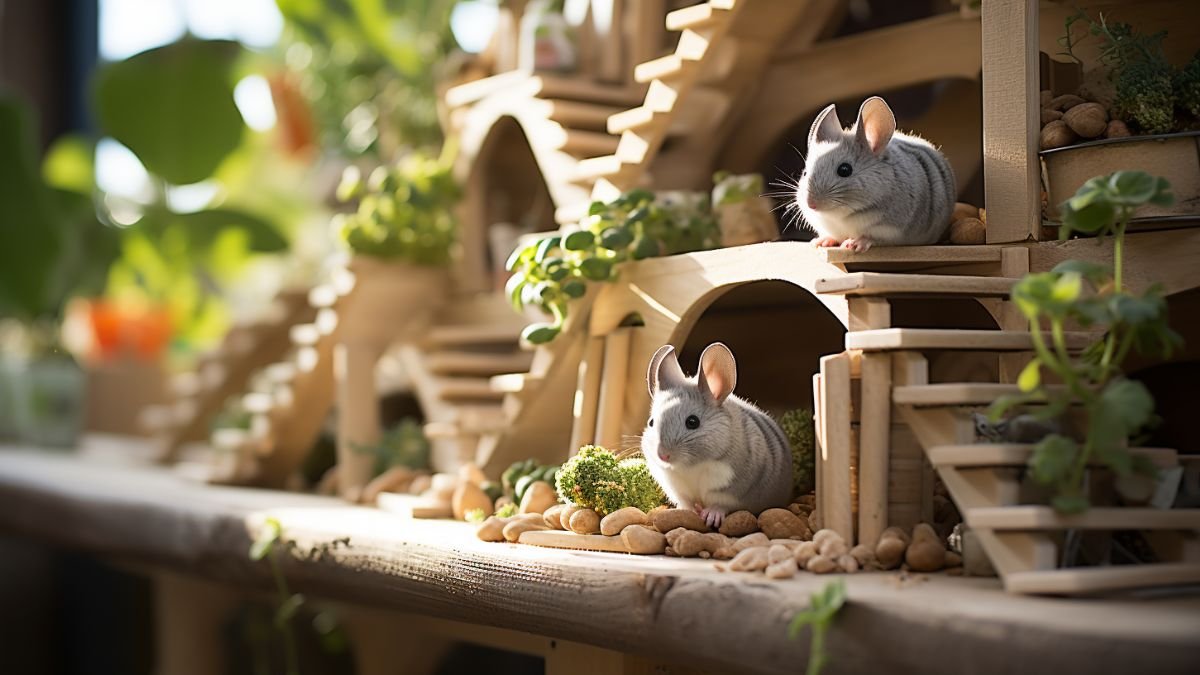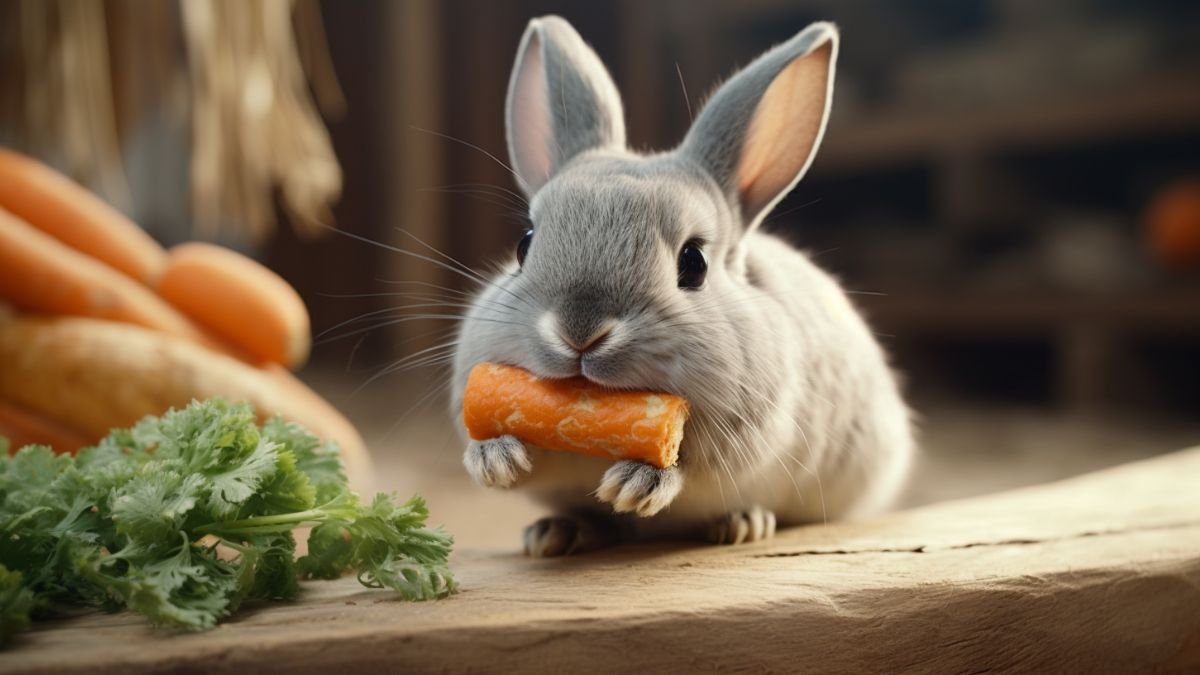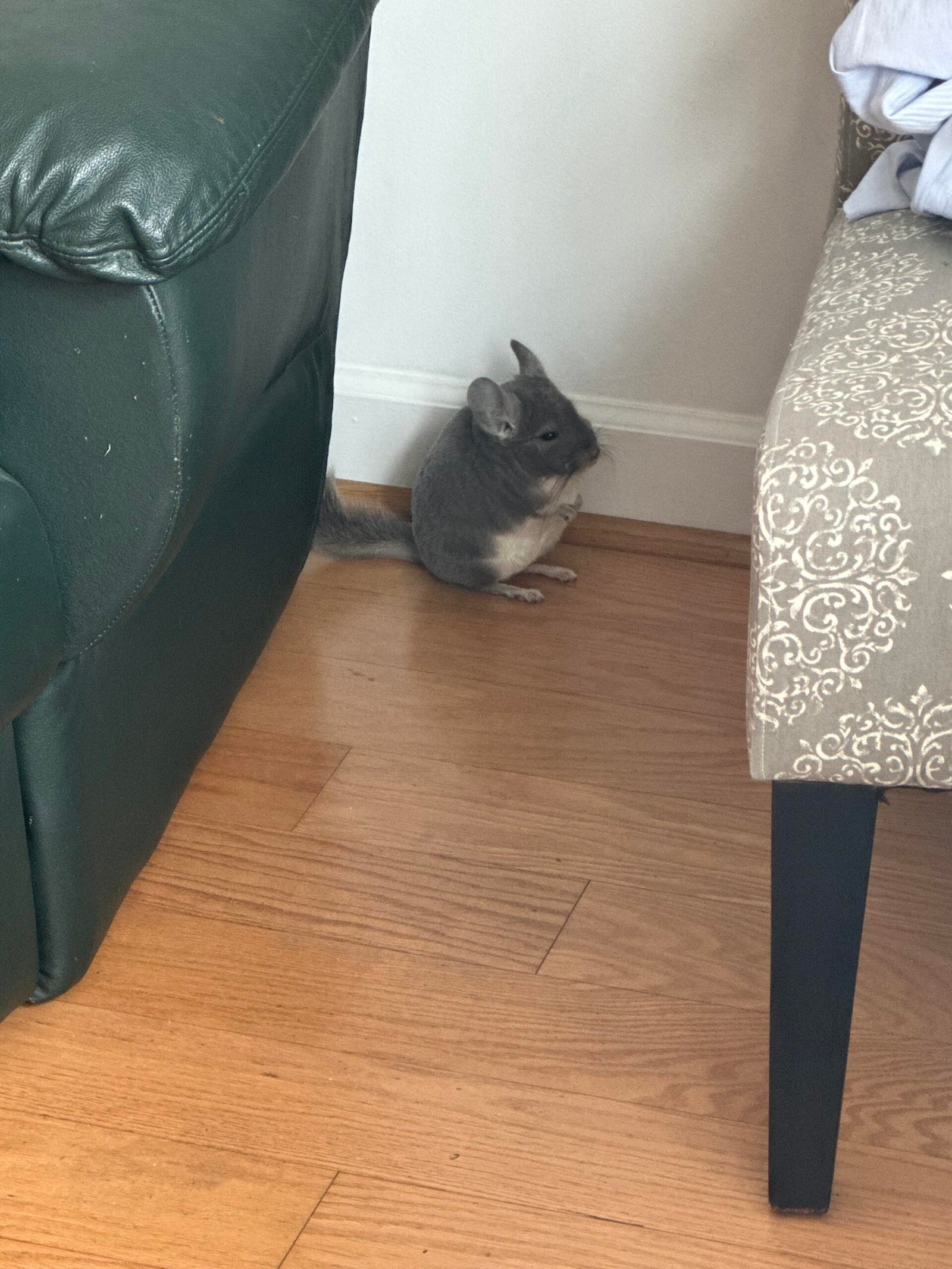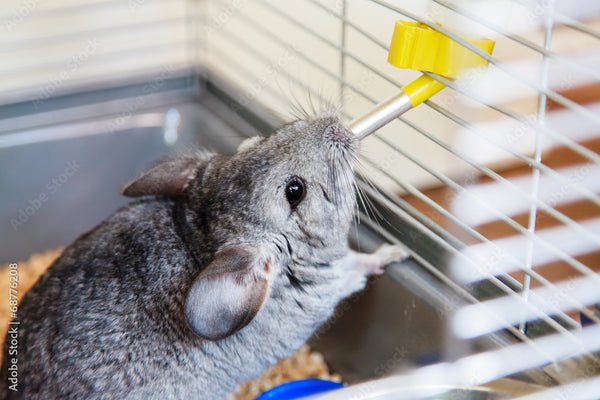
If you have a chinchilla, you probably wonder about the best water to give it. Can your furry friend safely drink tap water, or should you stick to bottled water?
The answer isn’t as simple as you might think. What you choose can affect your chinchilla’s health and happiness. Keep reading to discover what kind of water is safest for your pet and how to make sure they stay hydrated and healthy every day.

Chinchilla Water Needs
Chinchillas should drink clean water to stay healthy. Tap water is usually fine but check for chemicals. Bottled water can be used if tap water is unsafe.
Understanding Chinchilla Water Needs
Chinchillas need clean water to stay healthy and active. Water helps their body work well and keeps their fur soft. They drink small amounts often, not large amounts at once. Fresh water must always be available for them.
Dehydration can cause serious health problems in chinchillas. It can lead to kidney issues and poor digestion. Proper hydration supports their energy and mood. Owners must pay close attention to their water supply.
How Much Water Do Chinchillas Need?
On average, a chinchilla drinks 30 to 50 ml of water daily. This depends on their diet, age, and activity level. Hot weather can increase their water needs. Always provide enough water to avoid shortages.
Monitor their drinking habits. A sudden drop or increase may signal health issues. Consult a vet if you notice changes in their water intake.
Best Water Type For Chinchillas
Chinchillas need water free from harmful chemicals and bacteria. Tap water may contain chlorine and minerals that upset their stomach. Bottled water often has fewer impurities but can be expensive.
Using filtered water is a good option. It removes harmful substances while keeping minerals. Always change the water daily to keep it fresh and clean.

Tap Water Safety
Tap water is a common choice for many pet owners. Understanding its safety is key for chinchilla health. Tap water quality can vary greatly by location. It may contain minerals, chemicals, or contaminants.
Chinchillas have sensitive digestive systems. Some elements in tap water might harm them. Knowing what is in your tap water helps make the right choice.
Chlorine And Chloramine In Tap Water
Many water supplies add chlorine to kill bacteria. Chloramine is another chemical used for the same reason. Both can irritate a chinchilla’s stomach. They may cause discomfort or illness.
Using a water filter can reduce chlorine and chloramine. Letting water sit for 24 hours also helps chlorine evaporate. Chloramine does not evaporate easily and needs special filters.
Heavy Metals And Contaminants
Lead, copper, and other metals sometimes appear in tap water. These metals can build up in a chinchilla’s body. Long-term exposure may cause serious health issues.
Check local water quality reports to learn about metals. Use water filters designed to remove heavy metals. This step ensures safer water for your pet.
Water Ph And Mineral Content
Tap water pH varies from acidic to alkaline. Chinchillas prefer neutral or slightly alkaline water. Minerals like calcium and magnesium harden the water. Hard water can upset a chinchilla’s digestion.
Test your tap water’s pH and hardness. Use filters or bottled water if levels are unsuitable. Maintaining proper water balance supports chinchilla well-being.
Bottled Water Types
Bottled water is a popular choice for many pet owners. It offers a variety of options that may suit your chinchilla’s needs. Knowing the types of bottled water helps you pick the best one for your pet’s health.
Spring Water
Spring water comes from natural springs. It contains natural minerals and is usually clean. This water is safe for chinchillas as long as it has no added chemicals.
Distilled Water
Distilled water is pure water without minerals. It is made by boiling water and collecting the steam. This water is free from impurities but lacks minerals that chinchillas need.
Purified Water
Purified water goes through processes to remove chemicals and impurities. It is very clean but may also lose natural minerals. Check the label to see if minerals are added back.
Mineral Water
Mineral water contains added minerals like calcium and magnesium. These minerals can be good for chinchillas in small amounts. Avoid water with very high mineral content.

Water Quality Effects
Water quality plays a big role in chinchilla health. The type of water they drink affects their digestion and overall well-being. Poor water quality can cause health problems over time. Clean and safe water supports a chinchilla’s natural needs.
Chinchillas have sensitive stomachs. Water with impurities or chemicals can upset them. It is important to understand how different water sources impact their health.
Tap Water Concerns
Tap water often contains chlorine and minerals. These substances keep water safe for humans. But they may harm small pets like chinchillas. Chlorine can irritate their digestive system. Hard water with high minerals may cause kidney issues.
Water quality varies by location. Some tap water is safer than others. Testing tap water helps know its safety for chinchillas. Filtering tap water can remove harmful chemicals.
Bottled Water Benefits
Bottled water is usually purified and cleaner. It often lacks chlorine and heavy minerals. This makes it safer for chinchillas to drink. Bottled water reduces the risk of stomach problems.
Choose bottled water without added flavors or minerals. Plain, natural spring water is best. Check labels to avoid harmful additives. Always provide fresh bottled water daily.
Importance Of Consistency
Chinchillas prefer stable water quality. Sudden changes in water type may stress them. Switching between tap and bottled water is not ideal. Stick to one water source for better health.
Regular water changes keep water fresh. Clean water bowls prevent bacterial growth. Good water habits help maintain chinchilla vitality.
Common Water Contaminants
Water quality is very important for chinchillas. They need clean water to stay healthy. Tap water and bottled water can have different substances inside. Some substances can be harmful to chinchillas. Knowing about common water contaminants helps choose the right water.
Chlorine And Chloramine
Many cities add chlorine to tap water to kill germs. Chlorine can upset a chinchilla’s stomach. Some water has chloramine, a mix of chlorine and ammonia. Chloramine is harder to remove and can also harm chinchillas.
Heavy Metals
Tap water can contain heavy metals like lead and copper. These come from old pipes or pollution. Heavy metals build up in chinchillas and cause health problems over time.
Bacteria And Parasites
Untreated or poorly treated water may hold bacteria. Parasites can also be present in water sources. These germs can cause infections or digestive issues in chinchillas.
Fluoride
Fluoride is added to some tap water to protect teeth. Too much fluoride can hurt chinchillas. It may cause problems with their bones and teeth.
Hydration Tips For Chinchillas
Keeping chinchillas well hydrated is important for their health and happiness. They need clean water every day to avoid health problems. Proper hydration helps with digestion, fur quality, and energy levels.
Chinchillas drink small amounts of water often. It is best to provide fresh water at all times. Some water sources are better than others. Understanding the best water choice can keep your pet safe.
Choosing Between Tap Water And Bottled Water
Tap water may contain minerals or chemicals that affect chinchillas. Some tap water has chlorine or fluoride, which can upset their stomach. Bottled water is often purer but can be expensive.
Check your local tap water quality. If it is safe for pets, tap water can be used. Otherwise, bottled water is a good option to keep chinchillas healthy.
Using A Water Bottle For Chinchillas
Water bottles prevent water from getting dirty. They keep water clean and fresh longer. Use a bottle with a metal spout to avoid chewing damage.
Change water daily. Clean the bottle often to stop bacteria growth. This helps chinchillas drink safe water all the time.
Signs Your Chinchilla Needs More Water
Watch for signs of dehydration. Dry nose, sunken eyes, or lethargy are warning signs. If chinchillas drink less or seem weak, increase water availability.
Always keep extra water nearby. Hydration supports their health and activity levels.
Water Filtration Options
Chinchillas need clean water to stay healthy. Choosing the right water is very important. Water filtration helps remove harmful chemicals and particles. It makes water safer for your pet.
There are several ways to filter water at home. Each method has its own benefits and limits. Knowing about these options helps you pick the best one.
Activated Carbon Filters
Activated carbon filters remove chlorine and odors from tap water. They improve taste and smell. These filters do not remove all minerals but reduce harmful substances. They are easy to use and affordable. Changing the filter regularly keeps water fresh.
Reverse Osmosis Systems
Reverse osmosis systems clean water very well. They remove almost all impurities and minerals. This water is very pure and safe for chinchillas. These systems need installation and use more water. They are a good choice for very hard or polluted water.
Water Distillers
Water distillers boil water and collect steam. This process removes almost all impurities. Distilled water is very clean and free of chemicals. It lacks minerals, so use it with a balanced diet. Distillers need electricity and regular cleaning.
Simple Boiling
Boiling water kills bacteria and germs. It is a quick way to make water safer. Boiled water cools before giving it to chinchillas. This method does not remove chemicals or minerals. It is good for emergency water treatment.
Signs Of Dehydration
Chinchillas need water to stay healthy and active. Dehydration is a serious problem for them. It happens when they lose more water than they take in. Spotting dehydration early is important. It helps prevent health issues and keeps your chinchilla happy.
Signs of dehydration in chinchillas can be subtle. They show changes in behavior and body condition. Watch carefully for these signs to act fast.
Dry Nose And Mouth
A healthy chinchilla has a moist nose and mouth. Dryness in these areas can mean dehydration. Check your pet’s nose and mouth often. Look for dryness or cracking.
Sunken Eyes
Eyes that look sunken or dull are a warning sign. Healthy chinchillas have bright, clear eyes. Sunken eyes suggest the body lacks fluids.
Low Energy And Lethargy
Dehydrated chinchillas become less active. They may sleep more and move less. Notice any drop in energy or enthusiasm.
Poor Skin Elasticity
Skin elasticity shows hydration level. Gently pinch the skin on their neck. If it stays up or moves slowly back, dehydration is likely.
Decreased Urination
Less urination is a clear dehydration sign. Check the cage for fewer wet spots. This means your chinchilla needs more water.
Best Practices For Water Care
Proper water care is vital for chinchilla health. Clean water helps prevent illness and keeps chinchillas happy. Knowing the best ways to provide water supports their well-being.
Choosing Between Tap Water And Bottled Water
Tap water may contain minerals and chemicals. These can upset a chinchilla’s sensitive stomach. Bottled water is often purer but can be costly. Test tap water for chlorine and heavy metals before use. Use filtered water if tap water quality is low.
Water Temperature And Freshness
Always offer fresh water every day. Room temperature water suits chinchillas best. Cold water can cause discomfort or illness. Warm water may encourage drinking during cold weather. Replace water twice daily in hot climates.
Cleaning Water Bottles And Bowls
Clean water containers at least once a week. Use mild soap and warm water only. Avoid strong detergents that leave harmful residues. Rinse thoroughly to remove all soap traces. Dirty bottles can breed bacteria and cause sickness.
Water Bottle Placement And Accessibility
Place water bottles where chinchillas can reach easily. Avoid areas near food to prevent contamination. Check bottles daily to ensure they work properly. Use metal or glass bottles to avoid plastic toxins. Secure bottles firmly to cage bars.
Frequently Asked Questions
Can Chinchillas Safely Drink Tap Water?
Tap water is usually safe if it is clean and free from harmful chemicals or heavy metals.
Is Bottled Water Better For Chinchillas Than Tap Water?
Bottled water is often purer and may reduce risks from contaminants found in tap water.
What Water Temperature Is Best For Chinchillas?
Room temperature water is ideal; avoid very cold or hot water to protect their sensitive stomach.
How Often Should I Change My Chinchilla’s Water?
Change water daily to ensure freshness and prevent bacteria growth in their water bottle.
Can Hard Tap Water Harm Chinchillas?
Hard water with minerals can cause health issues; soft or filtered water is preferred.
Should I Filter Tap Water Before Giving It To Chinchillas?
Filtering removes chlorine and impurities, making tap water safer and better for chinchillas.
What Signs Show Chinchillas Have Water Problems?
Lethargy, poor fur condition, or loss of appetite may indicate water-related health issues.
Is Distilled Water Good For Chinchillas?
Distilled water lacks minerals; occasional use is okay but not recommended as the main water source.
Conclusion
Chinchillas need clean water to stay healthy and happy. Tap water can be safe if it is free from harmful chemicals. Bottled water often provides pure and safe drinking options. Always watch your chinchilla’s health and water habits closely. Choosing the right water helps prevent health problems.
Keep their water fresh and change it daily. Clean water supports their active and playful nature. Simple care makes a big difference in their life. Give your chinchilla the best water you can find. Their well-being depends on your careful water choice.



